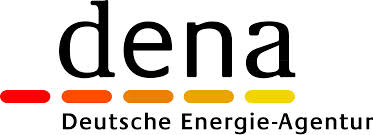
Continental Power System Master Plan – Modeling for the African Power Grid
17. April 2023
RLI becomes founding member of the Academic Council of Island Innovation
24. April 2023Short report on the subject of “Neighborhoods in the climate-neutral electricity system”

In this short report, RLI scientists investigate the effects of different concepts for heat supply with heat pumps on the expansion requirements of distribution grids. As for example, the challenges and opportunities of various district concepts for distribution network operators (DSOs).
Energy for heat
The heat transition is a central task in the changeover to a climate-neutral energy system. In this context, the decarbonization of this sector with the help of heat pumps leads to an increased use of electric power and has implications for the planning of residential neighborhoods. Compared to planning for individual buildings, heat grid-based concepts for supplying heat to such quarters make it possible to better exploit synergies between individual consumers. The results of the study should help DSOs to optimally integrate neighborhood concepts and their heat supply into their distribution grids and to better tap and use potentials from renewable energies economically.
Combination of distribution grid types and neighborhood concepts
For the project, the scientists define five different district concepts and four distribution grid types, consider their possible combinations and evaluate their compatibility. They distinguish between heat network-based and building-integrated concepts. The project team plans the design of the heat supply with heat pumps in the quarters along the criteria of heat source, temperature level of the heating circuit and a centralized and decentralized heat supply. In addition, the researchers define four typical distribution network types based on their supply task and generation structure. In doing so, they also take into account requirements of electromobility. With the results of the study, they show existing and future challenges in the distribution grid types.
Determining grid expansion requirements
With the help of a grid analysis, the project team determines the grid expansion requirements for different neighborhood concepts. The costs of grid expansion are compared to the total costs of the concept for heat supply.
Project period: 11/2022 - 02/2023
Energy for heat
The heat transition is a central task in the changeover to a climate-neutral energy system. In this context, the decarbonization of this sector with the help of heat pumps leads to an increased use of electric power and has implications for the planning of residential neighborhoods. Compared to planning for individual buildings, heat grid-based concepts for supplying heat to such quarters make it possible to better exploit synergies between individual consumers. The results of the study should help DSOs to optimally integrate neighborhood concepts and their heat supply into their distribution grids and to better tap and use potentials from renewable energies economically.
Combination of distribution grid types and neighborhood concepts
For the project, the scientists define five different district concepts and four distribution grid types, consider their possible combinations and evaluate their compatibility. They distinguish between heat network-based and building-integrated concepts. The project team plans the design of the heat supply with heat pumps in the quarters along the criteria of heat source, temperature level of the heating circuit and a centralized and decentralized heat supply. In addition, the researchers define four typical distribution network types based on their supply task and generation structure. In doing so, they also take into account requirements of electromobility. With the results of the study, they show existing and future challenges in the distribution grid types.
Determining grid expansion requirements
With the help of a grid analysis, the project team determines the grid expansion requirements for different neighborhood concepts. The costs of grid expansion are compared to the total costs of the concept for heat supply.
Project period: 11/2022 - 02/2023
The RLI assumes the following tasks:
- Definition of the neighborhood concepts to be considered
- Categorization of the distribution network types
- Analysis of the possible repercussions of the neighborhood concepts on the distribution grids
- Evaluation of the combinations in terms of compatibility based on the network backlashes and identified challenges
- Writing of a short study








